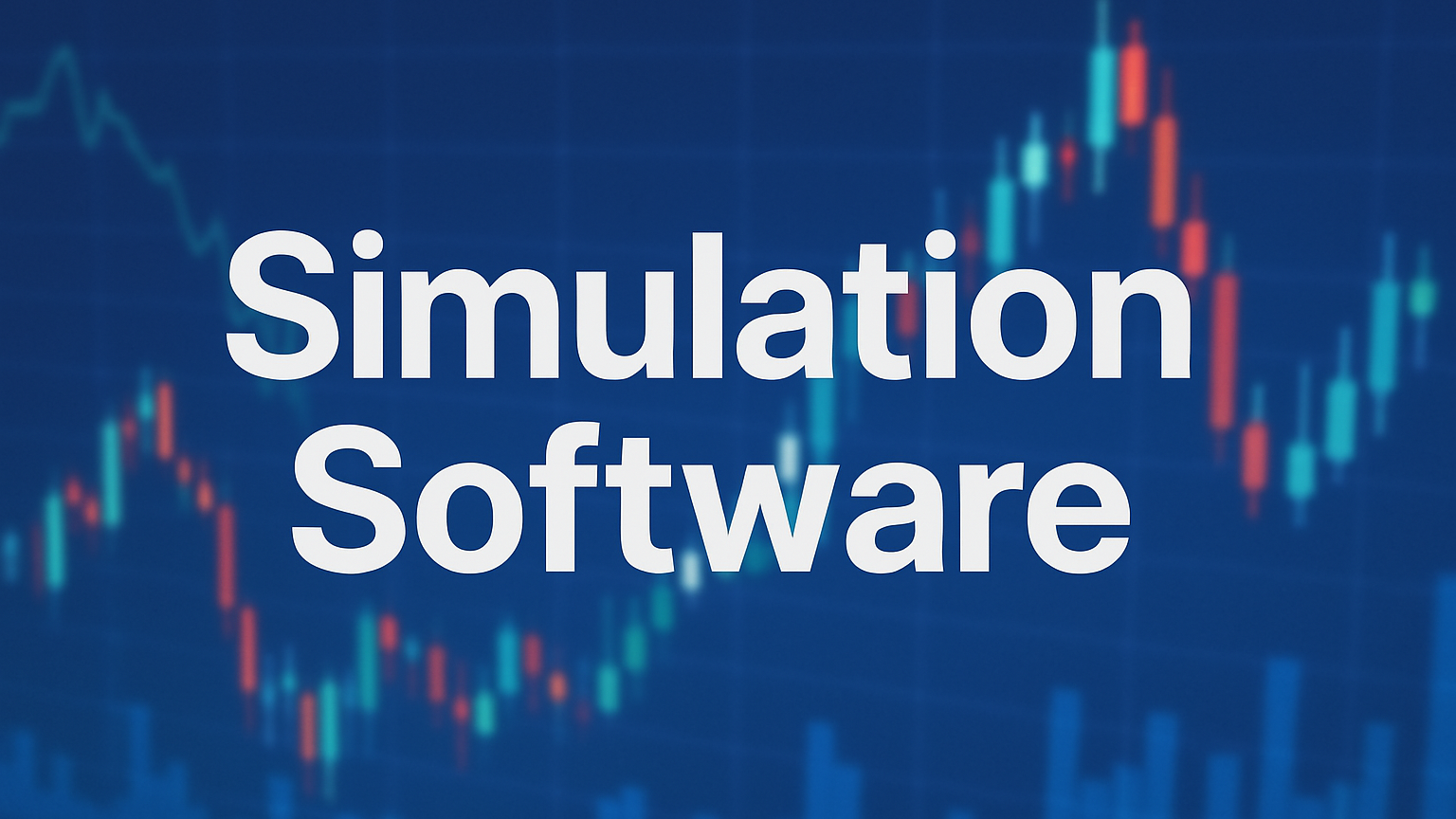Explore how AI enhances trading by managing emotions and improving decision-making, while highlighting the importance of human intuition.
AI agents are transforming trading by helping traders manage emotions like fear and greed—factors that often lead to poor decisions. By combining the analytical power of these AI agents with human judgment, traders can make more objective and consistent decisions. Here's what you need to know:
- AI Agent Advantages: Processes data in milliseconds, identifies patterns without bias, and minimizes emotional influence.
- Human Challenges: Emotional triggers like fear and greed can lead to impulsive actions and trading losses.
- Best Practices: Use tools like trading journals, risk management plans, and AI agent systems to stay disciplined.
- AI Agents' Role: Act as assistants—not replacements—to help traders follow strategies while adapting to market changes.
- Limitations: AI agents cannot replace human intuition or fully handle unexpected market events.
Quick Comparison
| Aspect | Human Trading | AI Agent-Assisted Trading |
|---|---|---|
| Efficiency | Slow, minutes to hours | Lightning-fast, milliseconds |
| Emotional Impact | Strong influence | Minimal to none |
| Pattern Recognition | Prone to bias | Consistent and unbiased |
| Reaction to Volatility | Panic or impulsive actions | Objective, strategy-driven |
To succeed, combine the analytical power of AI agents with your market knowledge. Use tools like LuxAlgo for real-time insights, but always rely on your judgment to navigate unpredictable situations.
Why Traders Make Emotional Mistakes
Trading decisions are often swayed by psychological factors, which can greatly affect performance. Even experienced traders can fall into emotional traps that cloud their judgment and lead to costly errors.
Common Trading Emotions
Fear and greed are two emotions that frequently disrupt trading. Fear can emerge when traders take on too much risk, leading to anxiety, premature exits, and poor decision-making. Conversely, greed can push traders to over-leverage, ignore risk management rules, or hold onto positions for too long during profitable periods [1].
Tools for Better Decision-Making
Traders use a mix of strategies to manage emotions, often supported by AI agents, to make better decisions:
| Strategy | Purpose | Impact |
|---|---|---|
| Trading Journal | Tracks decisions and emotions | Builds self-awareness |
| Position Sizing | Controls risk exposure | Reduces anxiety and improves focus |
| Trading Plan | Sets clear guidelines | Prevents impulsive actions |
| Risk Management | Defines stop-losses | Limits losses and emotional stress |
Cognitive-behavioral techniques, such as thought challenging, can also help traders break negative habits and reframe their thinking [1]. Emotional control begins with self-awareness, which can be developed through regular self-assessments and detailed record keeping of trades.
AI Agents in Modern Trading
Modern AI agents do more than just crunch numbers—they actively browse the internet to uncover fresh trade ideas. By scanning news, social media, and market forums in real time, they filter out emotional noise and confirmation bias, presenting traders with data-driven opportunities that might otherwise go unnoticed.
Core Functions of AI Agents
Beyond traditional data analysis, these agents now leverage online sources to spot emerging trends and validate ideas. Here’s how they add value:
| Function | Capability | Impact on Trading |
|---|---|---|
| Internet Browsing | Scans news, social media, and forums in real time | Identifies promising trade ideas while stripping away emotional bias |
| Data Analysis | Processes market indicators and online sentiment | Facilitates quick, objective decision-making |
| Pattern Recognition | Detects subtle trends in massive datasets | Generates precise signals free from confirmation bias |
| Risk Assessment | Continuously monitors global market conditions | Supports disciplined risk management |
By integrating internet-sourced insights with historical data, AI agents empower traders to discover opportunities with minimal emotional interference.
Current AI Agent Trading Applications
AI agents play a key role in various trading activities, and their use is expanding rapidly. Over 70% of financial institutions are now investing in systems designed for autonomous risk management. By 2025, global spending on AI agent–driven asset management tools is expected to surpass $10 billion.
These systems are particularly effective at reducing emotional trading behaviors, offering traders consistent, data-backed insights. Examples like ByBit's Aurora system and WunderTrading's arbitrage strategies showcase how AI agents can refine trading decisions by leveraging advanced data analysis [2] [4].
Rather than replacing human judgment, AI agents enhance trading efficiency and remove emotional bias from the decision-making process.
AI Agents' Impact on Trading Behavior
AI agents support traders by offering data-driven insights and automating decisions, helping to eliminate emotional biases. This leads to a more objective and structured approach to navigating the markets.
Data-Based vs. Emotional Decisions
AI agents' impartiality helps traders avoid common emotional traps such as panic selling or impulsive buying. Here’s how they compare:
| Emotional Trigger | Human Response | AI Agent–Assisted Response |
|---|---|---|
| Market Volatility | Panic selling | Analyzing volatility objectively |
| Fear of Missing Out | Impulsive buying | Identifying strategic entry points |
| Loss Aversion | Holding onto losses | Executing [?] automated stop-losses |
| Market News | Reactive trading | Evaluating sentiment over time |
By processing market news and social media chatter in real time, AI agents offer unbiased insights that help traders follow consistent strategies—even during periods of turbulence.
Sticking to Trading Strategies
AI agents play a key role in ensuring traders adhere to their plans, especially in high-pressure situations. By enforcing predefined strategies, they help prevent behaviors like overtrading, ignoring stop-losses, or deviating during volatile periods [2].
What AI Agents Cannot Fix in Trading
AI agents have opened up new possibilities in trading, but they cannot solve every problem—especially those rooted in human behavior. Recognizing these limits is key to crafting a balanced trading strategy.
Emotions Still Play a Role
While AI agents can process data with unmatched speed, they cannot replace human intuition or fully manage emotions. Trading often involves reacting to unexpected market shifts—situations where human judgment remains essential [3].
The Risks of Relying Too Much on AI Agents
Depending too heavily on AI agents can weaken critical thinking and diminish independent trading skills. When many systems follow similar strategies, they could inadvertently increase market volatility. Some studies have even shown that AI agent–driven trading systems may act more cautiously than others, leading to varying outcomes [5].
The best approach blends AI agents' data analysis with human insight, using them as tools to support—not replace—market understanding and risk management.
Combining Human and AI Agent Trading Skills
AI Agents as Trading Assistants
AI agents act as valuable partners that enhance human trading skills. These systems excel at spotting patterns and analyzing market trends quickly. For instance, QuantConnect's AI agent–driven platform allows traders to develop strategies while keeping the final decisions in their hands. The real advantage lies in how these agents support, rather than replace, human judgment.
By blending AI agents' analytical strengths with human strategy, traders can:
- Identify patterns and analyze markets in real time
- Calculate and manage risks effectively
- Test strategies using advanced backtesting tools
This partnership between AI agents and human expertise has proven its value in practical trading scenarios.
Success Stories in AI Agent Trading
Examples from the trading world highlight the benefits of combining human insights with AI agent tools. For example, RiskParity's algorithms help portfolio managers manage risk while still achieving performance targets. Similarly, the StockAgent framework simulates investor behavior in real-world conditions—demonstrating that traders using AI agent–based tools can outperform those relying solely on manual judgment [5].
Using LuxAlgo for Better Strategies

Once AI agents have combed the internet for promising trade setups, the next step is to execute a sound strategy. LuxAlgo bridges this gap with a suite of powerful tools designed to transform raw trade ideas into fully developed, backtested strategies.
A standout feature is the AI Backtesting Assistant. This tool allows traders to:
- Rapidly simulate trading strategies using historical data, providing insights into how a setup might perform under various market conditions.
- Benefit from a user-friendly interface that guides them in optimizing entry and exit points.
- Seamlessly integrate with other LuxAlgo features—such as the Optimization Engine, Multi-Timeframe Analysis, and Real-Time Strategy Evaluation—to fine-tune their approach.
In essence, once an AI agent flags a potential trade, LuxAlgo's robust toolkit (with its AI Backtesting Assistant leading the charge) helps traders design, test, and refine the strategy needed for successful execution. For more details, visit LuxAlgo Backtesting.
Conclusion: Next Steps in AI Agent Trading
AI agents are transforming the trading landscape, equipping traders with tools to streamline decision-making and manage emotions more effectively. But to thrive in this new era, traders must thoughtfully integrate these agents into their strategies.
The key lies in balance. Combining data-driven insights from AI agents with human judgment creates trading systems that can navigate market complexities. For example, Goldman Sachs employs AI algorithms to analyze massive datasets, while human oversight ensures these systems perform reliably during market turbulence.
To make the most of AI agent technology, consider these practical steps:
- Validate strategies with tools like LuxAlgo, which supports real-time analysis and optimization.
- Leverage AI agents to process data while maintaining emotional discipline during trades.
- Stay informed on advancements in AI agent trading to continuously refine your approach.
The most successful traders don’t rely solely on technology or intuition—they combine both. By leveraging AI agents for their strengths and complementing them with human market knowledge, traders can create well-rounded strategies that stand out in today's competitive trading environment.
References
- https://www.luxalgo.com/
- https://houseofcoco.net/the-psychological-aspects-of-trading-with-ai/
- https://stockstotrade.com/trading-psychology/
- https://www.restack.io/p/ai-driven-investment-strategies-answer-ai-agents-cat-ai
- https://www.appventurez.com/blog/ai-in-stock-trading
- https://docs.luxalgo.com/backtesting-system/s-o/tpsl
- https://wundertrading.com/en
- https://www.quantconnect.com/
- https://www.ssga.com/us/en/institutional/insights/putting-the-power-of-ai-to-work-in-investing
- https://github.com/MingyuJ666/Stockagent
- https://arxiv.org/html/2407.18957v2
- https://www.goldmansachs.com/
- https://www.luxalgo.com/backtesting/
- https://docs.luxalgo.com/docs/backtesting-assistant/introduction







